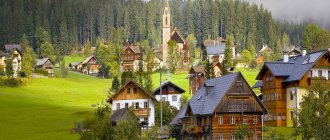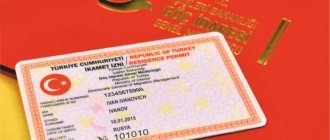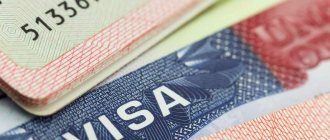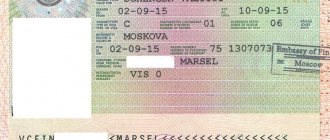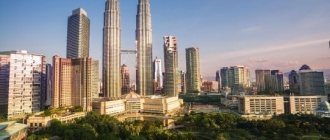Who are the late migrants to Germany?
This category includes persons and descendants of persons who suffered from the consequences of the Second World War and its side effects due to their belonging to German nationality. The main characteristics of a person who can be considered a late immigrant in Germany, if he wants, include:
- belonging to German nationality;
- presence of blood ties with a German citizen or ethnic German;
- sufficient knowledge of the German language;
- date of birth - before January 1, 1993.
The Bundestag is the unicameral Parliament of Germany.
Photo: wikimedia.org You can’t do without documentary proof of the German nationality of your parents or grandparents!
Moving to Germany
Moving from one country to another is a stressful and very expensive event. To emigrate to Germany from Russia, it is better to use other people’s experience and advice so as not to waste money.
Those who are already in Germany willingly share their memories.
Moving expenses
to go to live in Germany by train . It will carry more things than an airplane. A flight for 1 person will cost from 3 to 10 thousand rubles. depending on the season and airline, but the amount of luggage is limited.
1 seat in a train compartment costs 12-14 thousand rubles, but if you buy a 4-seater compartment for two, you can load 10 suitcases.
Renting apartments in Germany is expensive. Surprisingly, there is not enough housing for everyone. Experienced migrants advise finding temporary apartments while still at home (always with furniture and a kitchen to save money) on sites like Airbnb.com.
This will cost €2000-2500 per month with a deposit of €1300. Once settled, they methodically search for permanent employment. In the capital, 3000-4000 € is considered the norm.
Furniture is initially provided at sales or used. Sites like the Russian “Avito” and “flea markets” on Facebook are very popular. Food without luxury will cost 600-700 € per month.
For transport, bicycles are quoted: with a bus ticket of 5 €, a 2-wheeled friend for 80-100 € will pay for itself in 10 days.
Approximate expenses for the first month of living in Germany:
| Costs per adult | Rubles at the rate of 70 rubles. for 1€ | Euro |
| train ticket | 13 000 | 185 |
| Apartment for the first month | 245 000 | 2,200+1,300 (deposit) |
| nutrition | 45 500 | 650 |
| Honey. insurance (1 month) | 2 800 | 40 |
| transport | 7 000 | 100 |
| TOTAL | 306 300 | 4 475 |
Employment and unemployment
The number of unemployed remains stable around 5%.
Vacancies are open to highly qualified specialists with diplomas from universities, secondary educational institutions in Germany or recognized in it.
Employment opportunities are limited by the type of visa or residence permit obtained.
The most in-demand professions:
- banking and investment business, taxation;
- computer and Internet technologies;
- medicine;
- jurisprudence;
- construction in general;
- aviation;
- mechanical engineering and metalworking;
- pedagogy.
Salaries range from 40,000 to 130,000 € per year .
Moving with children
Immersion in a different language environment with different habits and values will be easy for active, sociable, cheerful children. For introverts, such a load can be disastrous.
In large German cities, the problem of placing children in kindergartens is as acute as in Russia.
In the country's traditions, women themselves raise the younger generation.
A non-working immigrant mother will be offered a nursery or kindergarten for half a day, which only interferes with employment. The solution (as in the Russian Federation) is private home kindergartens.
Local pediatricians practically do not make house calls . A sick child will have to be taken to the clinic and sit in the entire general queue.
Primary prescriptions are most often limited to antipyretics and antibiotics. Referral to a specialist is given in cases of serious complications.
Relocation of pensioners
According to German legislation additional payments are made if the pensioner’s income is below the minimum pension in the country (up to the amount of 416 € for those living alone and 374 € for those living together with other adults).
At the same time, problems arise with receiving the Russian part of the pension - the Pension Fund of the Russian Federation does not transfer it abroad directly.
The solution to the question of how to move to live from Russia to Germany for a pensioner is to contact the Russian consul for permission to open special accounts in Sberbank or VTB.
Every year you will have to collect certificates of residence abroad.
Attitudes of natives towards immigrants
Visitors often cannot fit into the German “order.” For locals, they remain “Russian” regardless of their real nationality. Thrifty Germans do not accept the relatively noisy and generous Russians.
Even experienced immigrants who are passionate about learning the language and traditions stumble upon the question: “So where did you come from?”
Fortunately, are many informal associations of compatriots , Russian satellite television, national stores, pharmacies, ensembles, and churches.
Moving stages
In order to move to Germany under the late resettlement program, it is important to go through certain steps to obtain this status. They are standard for everyone and may differ only in minor formalities:
- Collection of necessary documents, their apostille and translation into German.
- Court for change of nationality (only if necessary).
- Passing the German language proficiency exam, or sprachtest, and receiving a certificate.
- Sending a package of documents to the BFA and receiving a case number.
- Data verification at the BFA, which may request the delivery of missing documents.
- Issuance of a notice of acceptance if you are recognized as a late migrant. With this document you can come to Germany.
- Applying for a national visa D and moving.
An example of a positive court decision on a change of nationality
An example of a court decision on a change of nationality
Features of obtaining a residence permit for pensioners
For pensioners in Germany there is comfortable social security. But you need to get a residence permit. After that:
- contact the pension office at your place of residence;
- present your work book and pension certificate - documents must be translated into German and certified by a notary;
- You must present a valid foreign passport and residence permit;
- wait for a positive response from the pension service regarding the recognition of length of service and the calculation of a pension.
In Russia, they do not make notes that a person was sick or was on vacation. Therefore, to recognize length of service under German laws, they do not take the full “Russian” calendar year for calculation, but only 10 months. People retire in the country at 67 years old, so if you arrive before this age, you will have to get a job.
You can't leave, you can't stay
In the process of processing documents and receiving an admission decision (Aufnahmebescheid) from the BVA (German Federal Administrative Office), which proves belonging to the German people, it is important to remain in permanent residence in the area of original residence.
In other words, submitting an application and leaving for Europe means automatically depriving yourself of the chance to receive late migrant status. Germany acts principled in this matter.
It is important not to move from your country of residence abroad while your documents are being processed by the BVA. Photo: unsplash.com
However, relocation within the former USSR is permitted.
Emigration programs for persons of Jewish nationality and Germans with the status of late migrants
The opportunity is given to emigrate to Germany to persons of Jewish nationality from the countries of the former USSR (except for the Baltic countries, which have already become members of the EU), born before 1945. There is also a program for the repatriation of Germans who were at one time forcibly expelled from Germany to the territory of the USSR or Eastern Europe, as well as persons of German nationality who are descendants of Germans who lived in the territory of the former USSR due to historical circumstances.
After submitting all supporting documents, such persons are assigned the status of late migrant. Based on this document, a visa is issued; after departure, the applicant can obtain German citizenship. There is also a program for the emigration to Germany of direct relatives of later immigrants.
How well do you need to know German?
For a comfortable life in Germany, knowledge of the German language is not a formality, but a necessity. Obtaining the status of a late migrant is impossible without passing the Sprachtest - an exam on knowledge of the German language. The applicant must meet level B1, while for his family members, basic knowledge of level A1 will be sufficient.
An example of a Goette Institute certificate for language proficiency at level B1
An example of a Goette Institute certificate for language proficiency at level A1
The Sprachtest allows you to understand whether an applicant for late migrant status will be able to conduct a conversation on everyday topics and cope with basic life situations without the help of an interpreter. The language proficiency test can be repeated an unlimited number of times.
Initially, a good knowledge of German was necessary in order to prove to the German authorities that the language proficiency was inherited and not acquired.
How and where does language proficiency testing take place?
You can sign up for a language test (Sprachtest) at the German Consulate/Embassy in Russia. There is a second way - to take exams at the Goethe Institute, which has offices in many large cities of Russia. Upon successful passing of the exam at this institute, the applicant also receives the necessary A1 or B1 certificates.
Permanent residence in Germany from Russia
The Law on the Residence of Foreigners provides several grounds for obtaining a residence permit (residence permit) and subsequently obtaining permanent residence: 1. Return to homeland (repatriation)
The method is relevant for ethnic Germans living for some reason in the territory of other states. Citizens of this category simply need to contact the consulate/embassy of their country of residence and provide the necessary documents to obtain permanent residence in Germany in 2021. Advantages may include partial compensation for relocation-related costs and assistance in settling into a new place (provided by the German government).
2. Jewish immigration
Until 1933, many Jews lived in the territory controlled by Germany, a significant part of whom were forced to leave the state for political reasons, losing the property they had accumulated over the years. Cases of executions were not isolated either.
Currently, Jews of German origin have the opportunity to return to Germany under a special program, which provides for the payment of monetary compensation for events that took place during Hitler's period in power.
3. Family reunion
If you choose this option, you will have to confirm the presence of blood ties with the indigenous inhabitants of Germany. Foreigners who meet this criterion can apply for a residence permit and obtain citizenship under a simplified procedure. The following are considered as significant reasons:
- the need to move in order to reunite with a minor;
- desire to reunite with other family members;
- registration of marriage with a person who has the status of a native German (except for cases of fictitious registration of relations).
4. Getting a job and running a business
Migrants looking for work may encounter difficulties in obtaining a residence permit. An invitation issued by a German company is a mandatory document. In addition, it is advisable for a person with foreign citizenship applying for a vacancy to have specific knowledge/experience in a certain industry.
Foreigners starting their own business are faced with the need to pay taxes, which continue to be quite high. The bonus is the possibility of obtaining a residence permit in an expedited manner.
5. Assignment of refugee status
Persons who have a refugee card in their hands can contact the migration department to write an application of a certain sample. A residence permit (residence permit) is issued after reviewing the document.
6. Training
Registration of a residence permit is a mandatory procedure for persons planning to study at German universities for several years. After completing your studies, you can try to find a job in Germany. During the period of searching for a suitable vacancy, foreigners are paid special unemployment benefits. Taking into account the years lived in Germany, there is a possibility of obtaining citizenship through naturalization.
7. Volunteer programs.
A stay in Germany for 12 months is possible for foreigners who are ready to provide assistance to elderly citizens and the disabled. As an alternative, caring for graves in the cemetery is offered. In addition to the salary (approximately 450 euros), you can count on the provision of housing and food.
8. Au Pair
A program that allows foreigners to live in wealthy German families on the basis of a previously issued invitation. Persons with foreign citizenship who agree to care for an elderly citizen or provide assistance in housekeeping can expect to be provided with a separate room, pocket money (300 euros), health insurance and vacation (40 days). You can work no more than 6 hours per day.
9. Other options
The need to stay in Germany can be justified by the following reasons:
- acquisition of residential real estate;
- taking part in an exchange program (relevant for students and professionals);
- registration of inheritance;
- permanent stay in Germany for more than 6 months a year.
Registration of a residence permit involves the need to submit a complete set of documents to the relevant authorities.
Package of documents for obtaining late migrant status
Essentially, these are any documents that can prove the presence of a blood relationship with a German. For example:
- birth certificates,
- marriage certificates,
- archival certificates,
- certificates of rehabilitation.
Conditions for processing documents
All forms for obtaining late migrant status must meet two important requirements:
- Providing notarized copies of originals. Uncertified copies are not even considered.
- All documents in a foreign language must be translated into German and certified.
For birth and marriage certificates there is one more additional requirement - an apostille.
The exceptions are all certificates issued by EU countries, as well as: Russia until June 1992, Kazakhstan until February 2001, Ukraine until January 2004.
§ Laws and paragraphs of the Federal Republic of Germany governing the program and obtaining late migrant status in 2021
The following list contains the main laws that regulate the process of granting late migrant status, as well as an indication of the main paragraphs. Using the following list, you can view the text of each of these documents.
- Federal Law on Expelled or Forced Migrants (German: Bundesvertriebenengesetz, BVFG) - conditions for obtaining migrant status
- German Constitution (German) - § 116 on restoration of citizenship
- Citizenship Law (German: Staatsangehörigkeitsgesetz) - § 7 on acquisition of citizenship by late migrants
- Law on pensions earned in another country (German: Fremdrentengesetz)
Paragraphs of later immigrants to Germany § 4, 7, 8
The Federal Law on Expelled or Forced Migrants (German: Bundesvertriebenengesetz, BVFG) is the main law governing the process of granting late migrant status and obtaining the possibility of permanent residence in Germany. Members of the late migrant's family often also move with them, including their spouse, children, grandchildren and other relatives. Separate paragraphs of this law regulate the rights and benefits of each of this group of people moving to Germany for permanent residence. Thus, depending on the paragraph assigned to the moving person, his rights in Germany, the possibility of obtaining citizenship, etc. will depend. The following are the main paragraphs of this law.
| §4 Late migrant | Citizenship, dual citizenship, integration courses, integration allowance, pension for years of service outside Germany and other benefits. |
| §7 Spouse* and descendants of a late settler | Citizenship, dual citizenship, integration courses. |
| §8 Other family members | Stay permit or residence permit. |
* - the spouse of a late settler receives rights in accordance with §7 if he/she has been married to a late settler for at least 3 years, otherwise he/she receives §8.
Independent registration VS professional help
Of course, each candidate has the right to assess his own strengths and take care of the entire paperwork procedure independently. There is a lot of information on various Internet resources on how and what to do, where to go, what to prepare. Problems begin when expectations do not match reality, and the examples of stages that people have gone through are different from those that stand in your way. It is important to remember that we are all different and each has our own individual case. And there is only one chance to obtain citizenship.
To find a German among your ancestors, you will have to dig through a lot of archives. Photo: pixabay.com
Not every person will be able to find a German ancestor in archives, often foreign ones. Photo: pixabay.com
When you contact AUSLANDSFINANZAMT, you entrust the preparation to professionals. We constantly monitor all changes in laws and necessary documents. Personal employees of our company will work with you, who study the case of each client, analyze all the pitfalls and build stages of work individually for each.
Pros of trusting AUSLANDSFINANZAMT.
Free document analysis
- You won’t have to pay for not being a descendant of an ethnic German. Our lawyers first assess your chances of becoming a participant in the late resettlement program, and only then offer their services.
Work strictly according to contract
- We clearly state all our responsibilities and work in accordance with the contract; we are legally responsible for each client.
Every contract is insured
- If we were unable to fulfill the obligations of the contract, you will receive insurance compensation.
Convenient forms of payment
- Possibility of obtaining a loan through partner banks for a period of up to 24 months or interest-free installments through our company for up to 6 months.
Professionalism of employees
- The applicant is assigned a personal manager and lawyer. Our specialists will help and answer questions at any time convenient for you.
Full support in obtaining German citizenship saves time, money and your nerves.
Photo: offshorensk.ru/de Own language school
- There is no need to rush to look for courses - our tutors will prepare you to take the language test and tell you all its features. Your current level of German doesn't matter!
Help from all sides
- Our company will not leave you alone with the problems and needs that may arise, from the period of paperwork to moving to Germany.
For example, you can count on help with courts, archives, learning the language, culture of the Germans, and even social adaptation at the place of arrival.
Dozens of reviews and hundreds of successful migrants
Late migrant relocation visa
If you are pleased with the news that you have received a call to Germany as a late migrant, it is important to proceed to the next stage - applying for a visa. An ordinary Schengen visa will not work; to move to Germany you must obtain a national visa type D. All costs for its registration are borne by the German side. The repatriate only needs to prepare documents according to the established template.
This is what a national visa to Germany looks like
§ How to move to Germany as a late migrant: conditions and procedure
If a person belongs to the ethnic German group and qualifies for the resettlement program described above, he and his family will need to take a number of steps to be able to move to Germany permanently. The entire acceptance and resettlement procedure can last from several months to several years, much depends on good preparation for submitting applications for a decision to receive a decision to receive as a late settler and issuing a visa. The general procedure for moving to Germany as a late migrant includes the following steps, the sequence of which, in some cases, may differ from the one shown here:
- Preparation of documents for filing an application for recognition as a late migrant (for more information about the application and documents of a late migrant, see above);
- Submitting a completed and signed application for acceptance as a late settler (German: Aufnahmeantrag als Spätaussiedler) to the German Federal Administrative Office through a representative or by mail to the address: Germany, Bundesverwaltungsamt, 50728 Köln;
- Checking the application at the Office and possibly providing missing documents;
- The late migrant and adult family members who move with him must confirm their knowledge of the German language by passing a test at the Embassy or by providing a certificate (in some cases, confirmation is not required);
- Obtaining a decision on the acceptance of a late migrant (German: Aufnahmebescheid) from the Federal Administrative Office;
- Preparation of documents for obtaining a visa to enter Germany;
- Submission of documents and interview at the Embassy, obtaining a visa;
- Entry into Germany and registration at the Reception Center for Late Migrants in Friedland at Heimkehrerstraße 16, 37133 Friedland, tel.: 022899-358-9192;
- Interview in Friedland, assignment to one of the Federal States;
- Settlement in distributed land;
- Obtaining a Certificate of late resettlement and citizenship;
- Registration in various institutions, integration events;
How long does it take to obtain German citizenship under this program?
The maximum period for obtaining the desired passport is 3 years, it all depends on each specific case. If the candidate has all the necessary documents in hand, and he has already confirmed his knowledge of the language, then the receipt period is greatly reduced.
However, if a search for archival data is required, a trial for a change of nationality, a search for data in neighboring CIS countries, then all this can take a long time, especially if you do all this yourself.
Example of a document assigning a case number
Example of a call to Germany
Camp Friedland
Applicants who have been vetted by the Federal Office of Administration (BFA) and have received an admission decision (Aufnahmebescheid) first come to the camp in Friedland.
The Friedland camp is a kind of distribution hostel, where the documents of the displaced are checked. During the inspection and resolution of the housing issue, you can live in the camp absolutely free of charge. Meals are also provided here. However, the distribution procedure itself can take quite a long time if no measures are taken to speed it up.
Social benefits, benefits and housing for displaced people
To make it easier for a new repatriate to adapt to Germany, the country provides him with basic benefits, including:
- social benefit;
- child benefit;
- funds for renting housing and repairing it;
- funds for the purchase of furniture.
Let's summarize. The late resettlement program in Germany is a real gift for those who dreamed of moving to this country, but did not want to wait for many years to obtain citizenship. Be sure to check if you have ethnic Germans in your family. It often happens that in the post-war years this fact was hidden through documentation, and simply studying family archives will not be enough.
AUSLANDSFINANZAMT specialists will be able to study your situation in more depth, request archives in other CIS countries and will do everything possible to ensure that what was once secret becomes clear and gives you a ticket to a happy German future!
Subscribe to Migrantu Mir: Yandex News.
Features of life in Germany
Before moving to Germany for permanent residence, you need to know the characteristics of the country, standard of living, traditions and attitude towards migrants. Immigration to Germany can be accompanied by certain difficulties. The government of the state is very wary of people who want to become new citizens.
But permanent residence in Germany has its advantages and disadvantages, which should be realistically assessed before emigrating.
pros
Before moving, you need to evaluate the advantages of permanent residence in Germany:
- the standard of living is quite high;
- salaries will differ greatly from Russian ones;
- social protection of citizens is at a high level;
- the environment is favorable;
- citizens receive decent social benefits;
- prices for food and clothing are lower than in the Russian Federation;
- The Germans themselves are peace-loving, friendly people, they treat migrants well;
- roads in Germany are recognized as the best in Europe;
- German education meets world standards;
- the political situation in the country is stable;
- the economy in Germany is recognized as one of the most developed in the world;
- high level of medicine;
- extensive labor market;
- The country is very clean - not only in the capital and large cities, but also in the suburbs.
Minuses
Before leaving for permanent residence in Germany, you need to evaluate the shortcomings. The disadvantages of migration include:
- the taxation system is stricter than the Russian one;
- “labor” migrants are treated with caution;
- fines for violations are quite large;
- gasoline is very expensive;
- the climate is unusual for a Russian;
- Germans are punctual and pedantic, which causes some difficulties for visitors from Russia;
- the price of services, including mobile communications and taxis, is quite high;
- in large cities there are crime areas with high crime rates;
- You cannot obtain dual citizenship - you will have to renounce Russian citizenship;
- For Russians, learning German is quite difficult;
- obtaining legal status is difficult.

